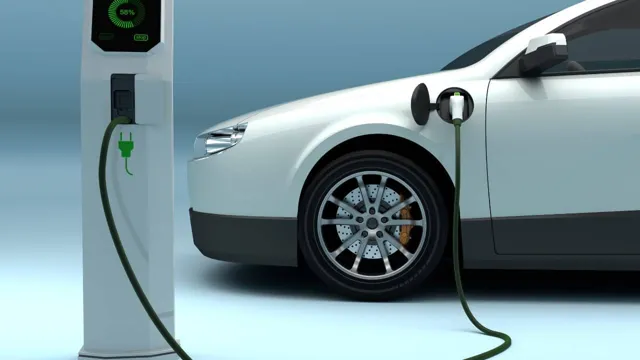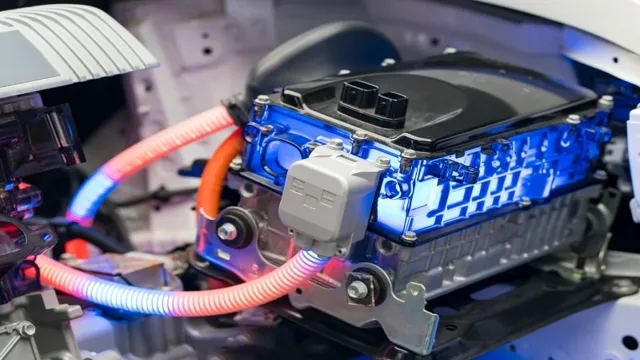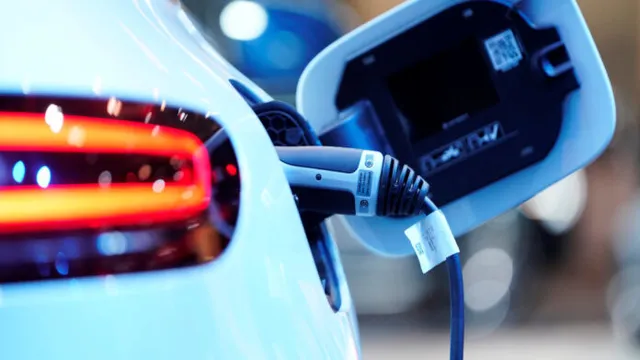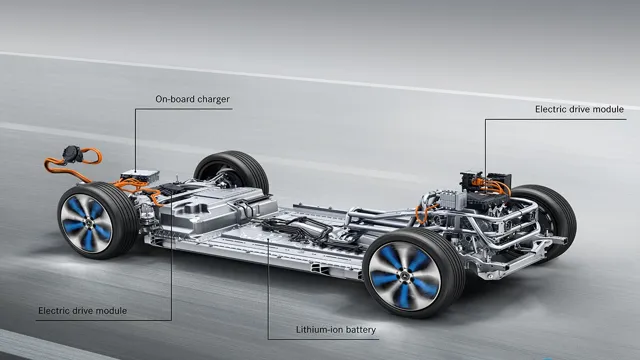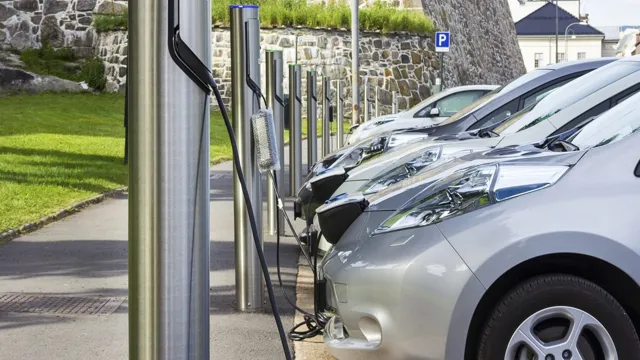Revolutionizing the Road: The Most Essential Technology in the Electric Car Industry
Electric car technology has made significant strides in recent years, with the automotive industry shifting towards sustainability, efficiency, and a greener future. As Energy and emissions concerns continue to mount, the future of transportation seems to be electric. The technology that surrounds electric cars has expanded to the point where it is no longer a question of how far electric cars can go or how much power they have, but instead the range and the experience they offer to drivers.
Electric cars offer a wealth of benefits, from being environmentally friendly to providing a quiet and smooth ride. As electric cars become more prevalent, so too does the technology that supports them. This blog will explore the current state of electric car technology and what we can expect in the future.
Importance of Batteries
Without a doubt, batteries are the most important technology in the electric car space. These days, there are many different types of batteries available, but the most commonly used one is the lithium-ion battery. These batteries are essential when it comes to powering electric cars because they store the energy that is needed to run the motor.
The reason why batteries are so crucial is that they determine how far a car can travel on a single charge. Without good batteries, electric cars wouldn’t be practical for everyday use. Moreover, batteries are also responsible for storing energy from regenerative braking, which helps extend the car’s range further.
As a result, battery technology is continuously evolving so that electric cars can travel further on a single charge and become even more practical for everyday use. In conclusion, batteries are undoubtedly the most important technology in the electric vehicle space, and they play a vital role in making electric cars practical and accessible to everyone.
Reducing Range Anxiety
One of the biggest concerns of electric vehicle (EV) drivers is “range anxiety”. This is the fear of running out of battery charge before reaching your destination. However, with the development of better battery technology, range anxiety is becoming less of an issue.
Batteries are the backbone of EVs, and they determine how far you can go on a single charge. The importance of batteries in reducing range anxiety cannot be overstated. As battery technology advances, we can expect to see EVs with longer ranges becoming more common.
The main goal of battery manufacturers is to extend the range of EVs so that drivers don’t have to worry about running out of charge. This will not only make EVs more convenient but also more practical for long-distance trips.
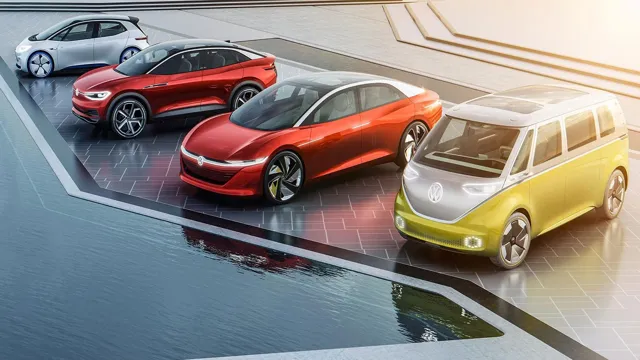
Breakthroughs in Battery Materials
Batteries are essential in our modern world, powering everything from our smartphones to large electric vehicles, making them a vital part of our daily lives. Breakthroughs in battery materials have been of great significance, as they provide a solution for the energy storage challenge. Scientists have been working tirelessly to develop materials that can replace traditional lithium-ion batteries, which have environmental and safety concerns.
For instance, Hydrogen fuel cells have become a promising alternative, due to their high energy density and eco-friendliness. These cells utilize hydrogen, which is a clean and sustainable fuel, resulting in no pollution or greenhouse gas emissions. Moreover, researchers are working on solid-state batteries, which are safer than traditional lithium-ion batteries.
They use solid materials instead of liquid electrolytes, resulting in higher energy density and quick charging times. All these breakthroughs are critical in the transition towards more sustainable energy sources, and not just in the aspect of electric vehicles. From smartphones to renewable energy storage, these innovations will transform the way we utilize and store energy.
Autonomous Driving
Autonomous driving is, by far, the most important technology in the electric car space. With the goal of completely eliminating the need for a human driver, autonomous driving has the potential to revolutionize the way we commute and drastically reduce the number of accidents caused by human error. In fact, many experts believe that autonomous driving is the key to unlocking the full potential of electric vehicles, as it can greatly improve efficiency and reduce energy consumption.
Another major benefit of autonomous driving is the potential for increased accessibility for people with disabilities or those without a driver’s license. While there are still some challenges that need to be overcome, such as ensuring the safety of passengers and pedestrians, the development of autonomous driving technology is progressing rapidly, and it’s exciting to think about the possibilities it holds for the future of transportation.
Enhanced Safety Features
Autonomous Driving technology has brought significant improvements in safety features for vehicles. With the help of sensors and cameras, autonomous vehicles can detect any obstacle or potential danger in their path. This technology can also detect traffic signals, road signs, and lane markings, making driving safer and more efficient.
Additionally, autonomous driving has the potential to drastically reduce the number of accidents caused by human error. With the advanced machine-learning algorithms used in autonomous vehicles, cars can better anticipate potential accidents and take preventive measures to avoid them. In conclusion, the enhanced safety features brought by autonomous driving technology have the potential to revolutionize the way we travel and drastically reduce the number of accidents on our roads.
Efficiency and Convenience
Autonomous driving technology has the potential to revolutionize the way we travel, making it more efficient and convenient than ever before. With autonomous vehicles, drivers can simply sit back, relax, and let the car take the wheel. This eliminates the need for human input, reducing the risk of accidents caused by human error.
With autonomous driving, vehicles can communicate with each other on the roads, allowing for smoother traffic flow and faster journey times. Additionally, instead of being stuck driving in traffic, passengers can use their time more productively by working, watching movies or simply relaxing. The convenience of not having to drive means that people can arrive at their destinations feeling more refreshed and less stressed.
The potential benefits that autonomous driving technology has to offer are immense, and as the technology develops further, it is likely that we will see more and more of these benefits in action.
Smoother Commutes
As technology continues to advance, autonomous driving is becoming increasingly popular in the transportation industry. The idea of a car driving itself may seem like something out of a science fiction movie, but it’s quickly becoming a reality. In the near future, autonomous driving could potentially eliminate the need for human drivers altogether.
This would not only create safer roadways, but it could also lead to smoother and more efficient commutes. The use of self-driving cars would allow for better traffic flow and fewer accidents caused by human error. Traffic jams could become a thing of the past, as autonomous vehicles could travel closer together without fear of collisions.
Overall, the benefits of autonomous driving are numerous, and it’s exciting to see how this technology will continue to shape the future of transportation.
Charging Infrastructure
When it comes to electric cars, the most important technology in the space is the charging infrastructure. Without the ability to quickly and efficiently recharge electric vehicles, their adoption would be limited. EV owners need a reliable network of charging stations that are easy to access, fast and don’t break the bank.
Whether it’s at a home charging station, workplace or public charging facility, the convenience of being able to “fill up” on electricity is paramount. The good news is that the charging infrastructure is rapidly growing and improving, making owning an EV more practical and convenient than ever. With enough charging infrastructure, range anxiety becomes a thing of the past, and the transition to electric vehicles becomes much smoother.
As more and more drivers switch to EVs, the demand for charging stations will only increase. So, it’s essential that we continue to invest in this technology and ensure its continued growth. Ultimately, a well-established charging infrastructure will be a game-changer, paving the way for a future where electric vehicles are the norm rather than the exception.
Increased Accessibility
With the increasing popularity of electric vehicles, the need for a reliable charging infrastructure has become more evident than ever before. Fortunately, the advancements in charging technology have made it possible to expand the accessibility of EV charging stations, making them available in more locations than ever before. The main keyword “charging infrastructure” is a vital aspect of our EV industry.
This advancement in technology is great news for EV owners who want to venture on longer trips. Thanks to the fast-charging technology, these stations can fully charge an EV in just a matter of minutes! Furthermore, the increasing accessibility of EV infrastructure means that more and more people can feel confident about owning an EV without having to worry about being stranded without power or stuck with a limited range. As more businesses and organizations continue to install EV charging stations, it demonstrates a commitment to sustainability.
As a result, many more consumers are likely to invest in EVs, further driving the demand for charging infrastructure. So if you’re considering purchasing an electric vehicle, don’t let range anxiety hold you back because the future of EV charging infrastructure looks promising!
Clean Energy Integration
As clean energy integration becomes increasingly important, one key area that must be addressed is charging infrastructure. With the rise of electric vehicles and other clean energy transportation options, it’s essential that there are enough charging stations available to meet the needs of drivers. Not only does this ensure that people can easily access the energy they need, but it also makes it easier for them to make the switch to clean energy options without worrying about running out of power.
Building out a comprehensive charging infrastructure takes time and effort, but it’s an essential piece of the puzzle when it comes to building a sustainable future. By investing in charging infrastructure now, we can ensure that we’re able to support the widespread adoption of clean energy options, accelerating the shift away from fossil fuels and towards a more sustainable future.
Conclusion
In conclusion, the most important technology in the electric car space is undoubtedly the battery. After all, what good is an electric car if it doesn’t have a reliable and efficient way to store energy? As we continue to push towards a more sustainable future, the development of long-lasting, fast-charging batteries will be essential to making electric cars more practical and accessible. So let’s raise a toast to the humble battery, the unsung hero powering our electric dreams.
“
FAQs
What is the most important technology in the electric car space?
The most important technology in the electric car space is the battery technology. This technology determines the range and efficiency of the vehicle.
How has the development of battery technology impacted the electric car market?
The development of battery technology has enabled electric cars to have longer ranges and increased efficiency, making them more appealing to consumers and driving growth in the electric car market.
Are there any new advancements in battery technology that could further improve electric cars?
Yes, there are new advancements being made in battery technology such as solid state batteries and battery recycling. These technologies could potentially improve the range and lifespan of electric car batteries.
How does the cost of battery technology impact the adoption of electric cars?
The cost of battery technology is currently one of the primary barriers to widespread adoption of electric cars. As battery technology becomes cheaper, it is likely that more consumers will consider purchasing electric cars.
